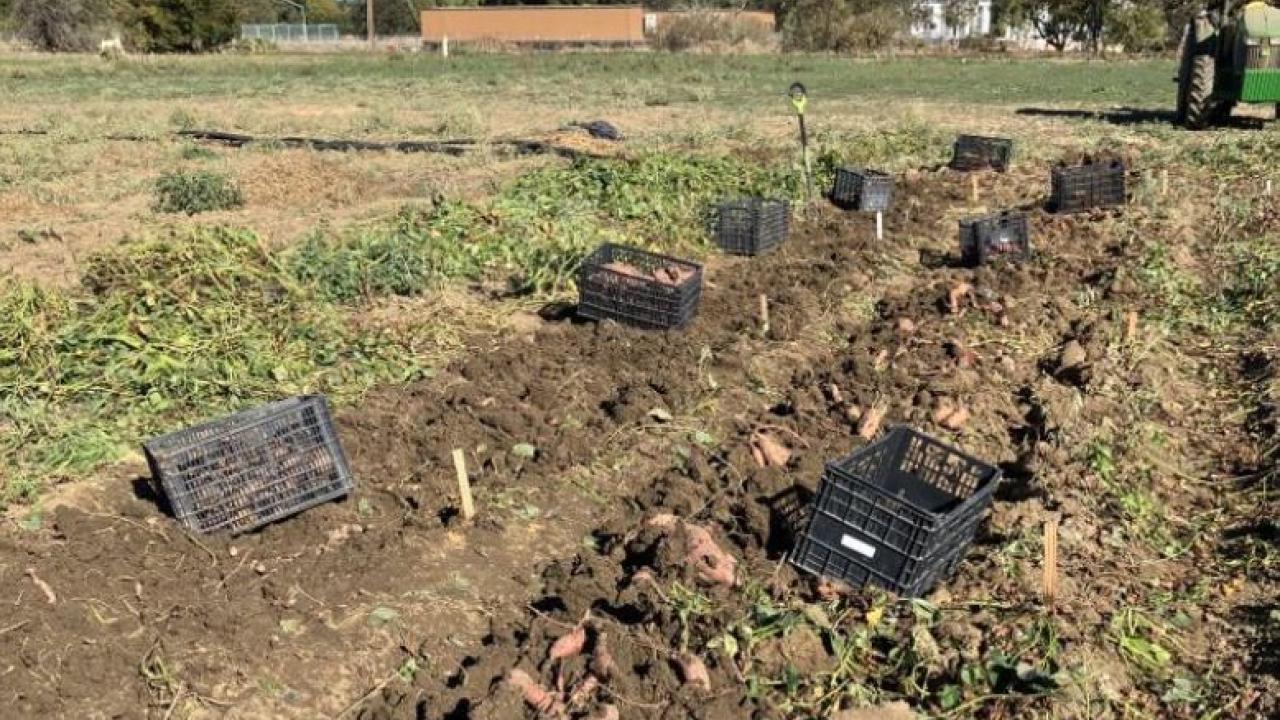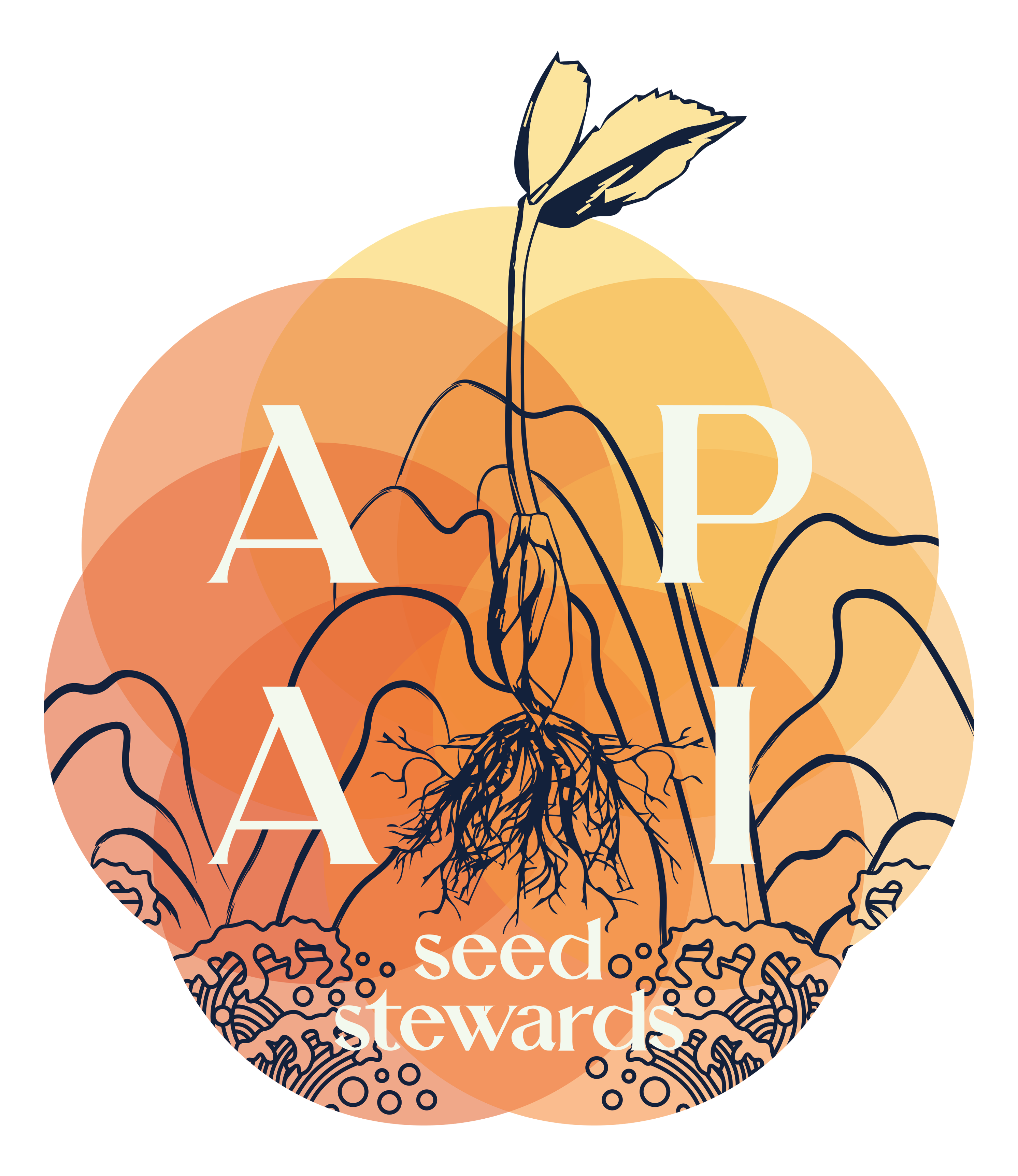
Cultivating a Sweeter Community (part 1)
Introducing the Participatory Sweet Potato Trials with California’s AAPI Farmer Community
Project Director: Travis Parker
Collaborators: Kristyn Leach (Second Generation Seeds, Namu Farm), C. Scott Stoddard (UC Cooperative Extension), Ga Young Chung (Department of Asian American Studies, University of California, Davis, CA), Antonia Palkovic, Troy Williams, Laura Roser, Charlie Brummer (Department of Plant Sciences, University of California, Davis, CA)
As a part of our efforts to incorporate culinary and cultural significance into the plant breeding process, we embarked on a sweet potato variety trialing and breeding project funded by the UC Sustainable Agriculture Research and Education Program. In recent years, there has been a rise in demand for sweet potatoes, particularly cultivars that are popular among Asian and Pacific Islander (AAPI) groups. Therefore, the trials revolved around varieties popular within the AAPI community, including Red Japanese and all purple varieties. Many of these sweet potatoes have distinct tastes, colors (particularly purple varieties), and other culinary features, but they are not commonly grown in California and must be imported from hundreds of miles away.
This project aims to evaluate sweet potato cultivars for their flavor and performance in the field. To do so, multiple cultivars of sweet potatoes were grown in various locations throughout California by AAPI farmers, where they can record the agronomic characteristics they like. The project has involved screening a broad diversity of sweet potato germplasm, including landraces (particularly those with origins in East Asia and the Pacific), modern commercial cultivars, and breeding materials from Louisiana State University and UC Davis. A tasting event was held with the Japanese Language and Culture Club, to explore culinary differences between varieties. Interviews are also being conducted with the AAPI grower community to better understand grower preferences for sweet potatoes and other crops. The results indicate that some breeding lines and some landraces are very promising for California production, and highlight the value of breeding the crop for California's unique organic conditions. As we reach the end of this project, we hope to increase crop diversity, farm profitability, and climate resilience through the publication of our variety trial results. We also hope to support AAPI farmer-led breeding projects through this project and other grant-funded breeding projects that will empower the community to increase farm profitability, food sovereignty, and sustainability over time.
